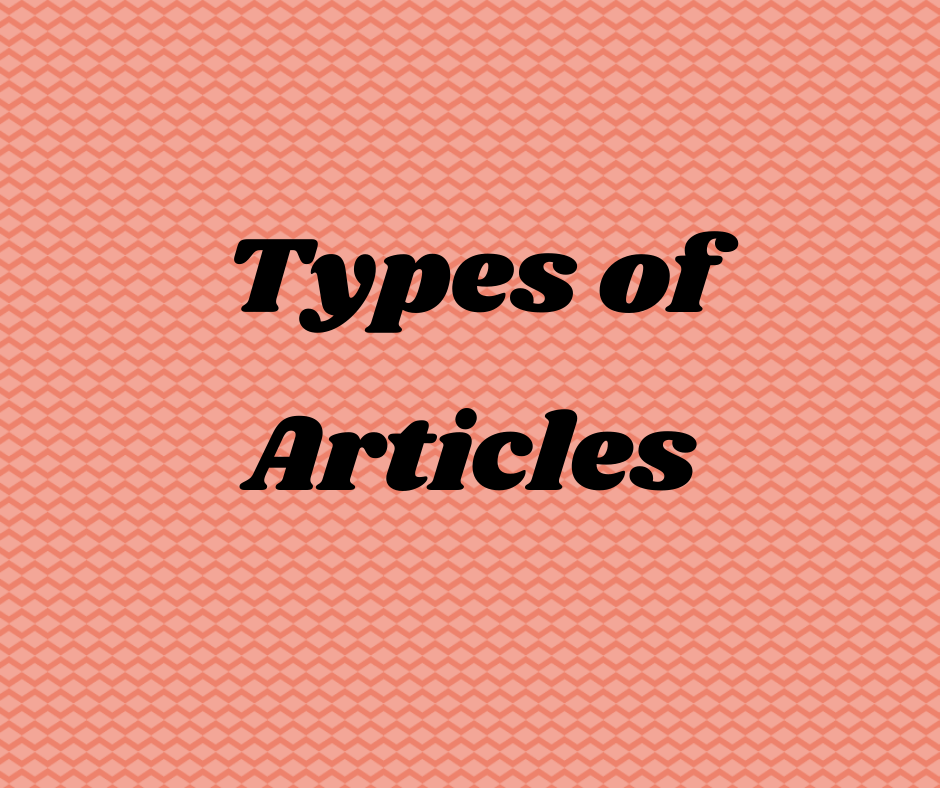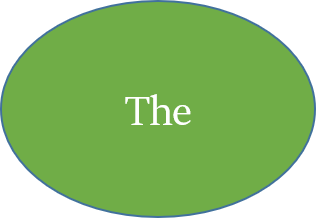Types of Articles

There are two Articles – a (or an) and the.

An article needs a noun in absence of which, we cannot use any article.
Types of Articles
There are two types of Articles:
Indefinite Article
Definite Article
Indefinite Articles

An Indefinite Article leaves indefinite the person or thing spoken of, i.e. the noun is not specified.
A mechanic (i.e. any mechanic).
An elephant (i.e. any elephant).
Concept 1: Indefinite article with singular countable nouns
We generally use indefinite article before singular countable nouns (when they are indefinite and introduced for the first time).
This is ring. (incorrect)
This is a ring. (correct)
She gave me apple. (incorrect)
She gave me an apple. (correct)
Exception
We do not use an article before a singular countable noun, if there already is a determiner for it.
This is my book. (my – determiner)
I like this book. (this – determiner)
I have two books. (two – determiner)
This book is new. (this – determiner)
Concept 2: Indefinite article with plural nouns
‘A/An’ should not be used with plural nouns.
A boys are playing. (incorrect; boys – plural noun)
Boys are playing. (correct)
A teachers have arrived. (incorrect; teachers – plural noun)
Teachers have arrived. (correct)
The teachers have arrived. (correct)
Concept 3: Indefinite article with uncountable nouns
A/An is not used with uncountable nouns.
She gave me an advice. (incorrect)
She gave me advice. (correct)
Definite Article

Definite article is normally used for some specific person or thing (i.e. a definite noun), i.e. something that we can point out, visualize or that has already been introduced.
She saw the mechanic. (i.e. some particular mechanic)
Once upon a time, there lived a king. The king was very cruel.
(notice that in the second instance of ‘king’ we used ‘the’, as it had already been introduced.)
The definite article is used before:
- singular countable nouns, e.g. the car
- plural countable nouns, e.g. the cars
- uncountable nouns, e.g. the milk
A versus An
The choice between ‘a’ and ‘an’ is determined by sound.
Use of An
We use ‘an’ before these words:
A word beginning with a vowel sound.
E.g. an orange, an umbrella, an enemy, an ink-pad.A word beginning with a silent letter ‘h’ and a vowel sound (i.e. initial consonant ‘h’ is not pronounced). E.g. an hour, an honour.
Use of A
We use ‘a’ before these words:
A word beginning with a consonant sound.
E.g. a boy, a horse.A word starting with a vowel letter but still beginning with a consonant sound.
E.g. a university, a union, a utensil, a European, a ewe, a unicorn, a useful article.
(these words begin with a consonant sound of ‘yu’)
a one-rupee note, a one-eyed man.
(‘one’ begins with the consonant sound of ‘w’)
Position of Articles
Pattern 1
An ‘article’ comes before a ‘noun’.
Pattern: Article + Noun
He is a student. (student - noun)
That is an island. (island - noun)
Pattern 2
If an adjective qualifies the noun, the ‘article’ comes before the ‘adjective’.
Pattern: Article + Adjective + Noun
He is a poor. (incorrect; poor – adjective; noun missing)
He is poor. (correct; poor – adjective working as subject complement)
He is a poor boy. (correct; poor – adjective; boy - noun)
She is an honest. (incorrect; honest - adjective; noun missing)
She is honest. (correct; honest – adjective working as subject complement)
She is an honest girl. (correct; honest – adjective; girl - noun)
Exception
If there is a singular countable noun between as…as, so…as or so…that, and it needs an article, then that article will come just before the noun.
Pattern 1: as + Adjective + Article + Noun + as
He is as great a man as Mragank.
Pattern 2: so + Adjective + Article + Noun + as
She is not so clever a woman as Aanya.
Pattern 3
If an ‘adverb’ qualifies the ‘adjective’ qualifying the ‘noun’, the ‘article’ comes before the ‘adverb’.
Pattern: Article + Adverb + Adjective + Noun
He is a very good student. (very – adverb; good – adjective; student - noun)

Extra Books and Tools
If you prefer to learn via books, or want some good English Grammar books for reference purposes, you may read this article which enlists some of the books recommended by us.